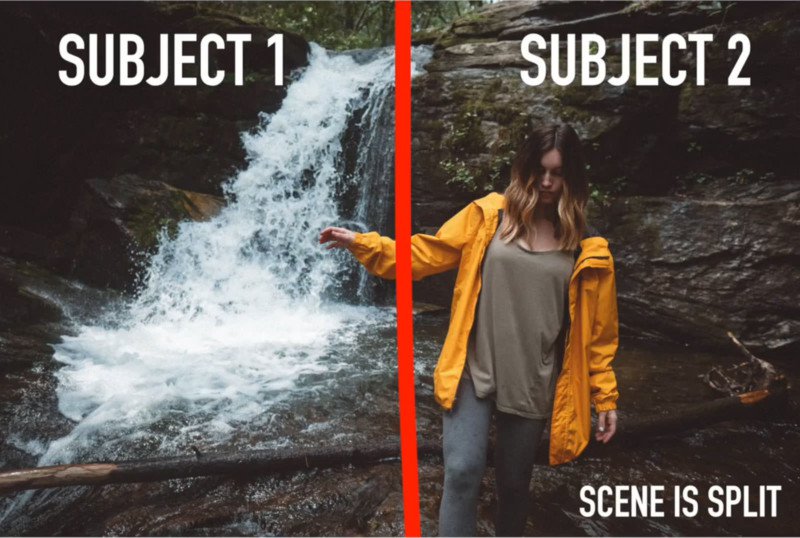
When it comes to composition “rules”, it’s important to understand the concepts so that you have them in the back of your mind while shooting. You’re not going to jail if you break them, but you will likely end up with a better image if you follow them! This 6-minute video from photographer Evan Ranft runs through 4 common composition mistakes that photographers make, and how to avoid them.
Ranft has created before and after images to go along with his tips so that you can see the impact that the mistakes have on the image. The 4 mistakes are:
1. Double Subject
![]()
The first example is what Ranft refers to as the ‘double subject’ – where you position two subjects in an image with equal weighting. This splits your attention and creates conflict in the image.
![]()
Instead of splitting the image, select a subject to be in the foreground and create isolation using a shallow depth of field. This creates a primary focus for the viewer’s eye to settle on.
2. The Look Out
![]()
In this example, Ranft has again split the focus in his image and directed his subject to look out of the frame. This creates tension in the image by directing the viewer’s eye outside of the image.
![]()
This can certainly be used effectively depending on the situation, but a more balanced image would be to have the subject leading out gaze in to the image and towards the forest backdrop.
3. Tangent Lines
![]()
This example has background elements cutting through the subject in a way that reduces isolation of the subject and cuts up the image.
![]()
By finding a more open backdrop, Ranft is able to frame his subject in the image and capture a similar sense of motion, using leading lines to draw the viewer towards the model.
4. Being Lazy
![]()
Ranft’s favorite example of this is the “pet photo test”, which is a typical lazy snapshot that many people might take of a cute pet. This is an image taken without much thought to composition – only aiming to include the subject somewhere in the frame.
![]()
Improving this photo doesn’t take much work. Simply finding another angle (in this case from eye-level) drastically improves the image. Ranft’s advice is to try not to be lazy and keep on the lookout for better composition opportunities.
Watch the video at the top to learn these concepts from Ranft, and to find more of his great photography-related videos, subscribe to his popular YouTube channel.

